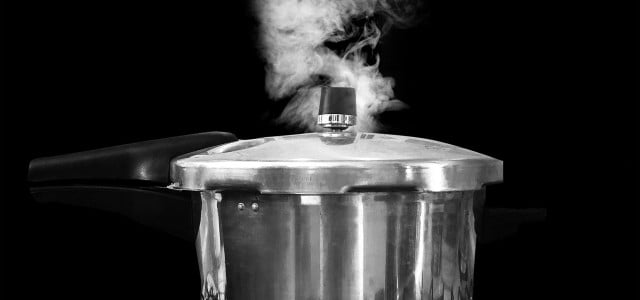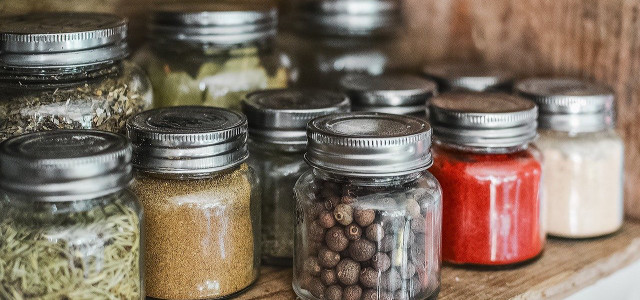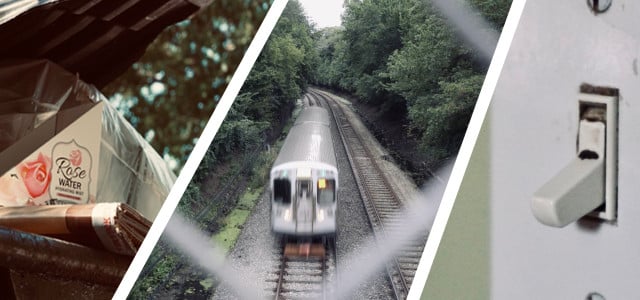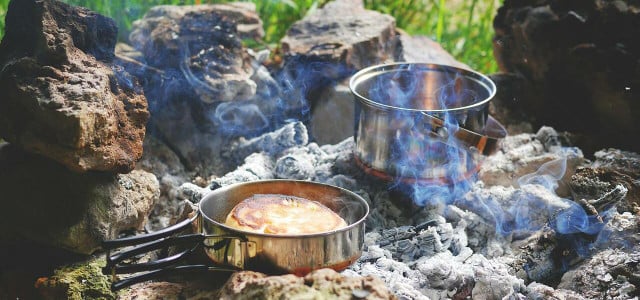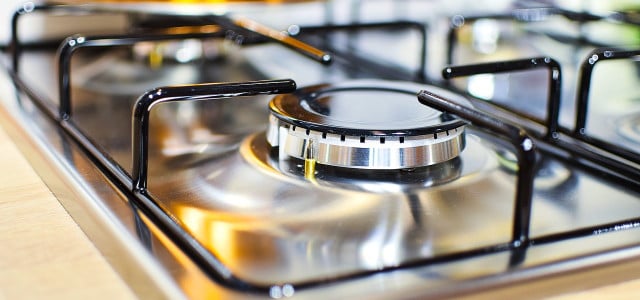Pressure cookers have made a comeback in the past few years, but what makes them so special? If you're curious about the benefits of pressure cooking, read on.
Pressure cookers have been around for a long time, gaining heightened popularity during the 1950s, and quickly becoming a staple kitchen appliance. However, they also acquired an unfortunate reputation as being dangerous around this time, and their popularity sharply fell. While any risks have been wholly engineered out of modern pressure cookers, they remain something of a novelty kitchen item. There are many benefits of pressure cooking to take into consideration, we’ll explain them below.
What is a Pressure Cooker?
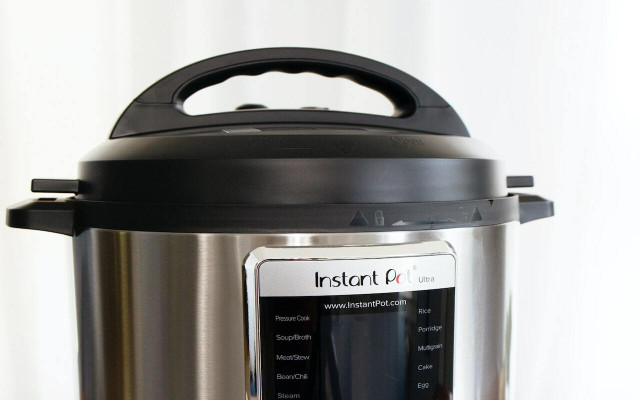


(Foto: CC0 Public Domain / Unsplash / Katherine Chase)
A pressure cooker works using steam pressure. There are two commercially available pressure cookers: stove top and electric. Stovetop pressure cookers are lightweight and have strong locking, and pressure control lids. Electric pressure cookers use a lot more energy since they have to be plugged in, but they are good multifunctional tools for people with limited kitchen space or a busy lifestyle.
Whatever your preference, pressure cookers are ideal for making one-pot meals such as soups, stews, and curries. Changing how you cook your food can help keep more natural nutrients in your ingredients and keep out unwanted potentially harmful compounds.
Check out some of our favorite one-pot recipes that can be easily adapted to pressure-cooked meals:
- Cuban Black Bean Soup: Warming Recipe
- Tuscan White Bean and Kale Soup: Vegan Recipe
- How to Make Vegetarian Stew
- Summery Vegan Corn Chowder Recipe
- Vegan Sancocho: Recipe for the Flavor-Packed Dominican Root Stew
1. Nutrient Retention
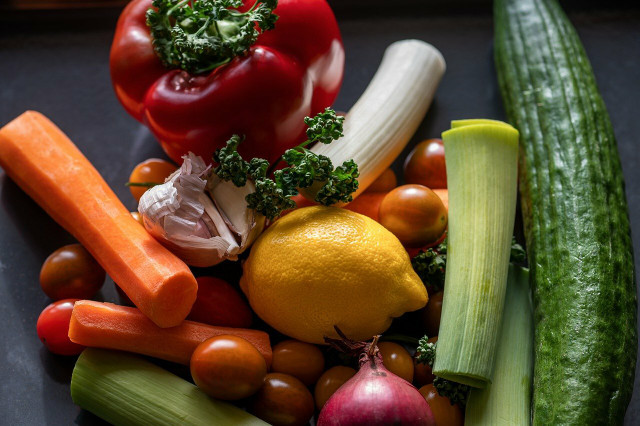


(Foto: CC0 / Pixabay / fotoblend)
When you cook food, some nutrients are always inevitably lost. When nutrients are exposed to high temperatures for a long time, such as when they are fried or boiled, they are often completely depleted or evaporated. Many people worry that pressure cookers will kill all the wonderful vitamins and minerals in fresh food ingredients because they cook at such high temperatures.
While pressure-cooking can reduce heat-sensitive nutrients and bioactive phytonutrients from vegetables, such as vitamin C and folate, foods that are pressure cooked are cooked faster. Therefore, they have more nutrients and vitamins than foods that are cooked for a longer period of time using traditional pots and pans. This is because shorter cooking times, even at higher temperatures, generally mean that more vitamins and minerals are preserved.
Pressure cooking also makes grains and legumes, such as chickpeas, more nutritious by increasing their digestibility and bioavailability. For these reasons, pressure-cooked meals are typically seen as a healthy option. Finally, thanks to the closed system of the pressure cooker, any nutrients that evaporate during the cooking process are contained inside the pressure cooker, locking in all the flavors that can be easily lost with conventional cooking.
Tip: At the end of the cooking process, any excess liquid that hasn’t been absorbed by your food can then be used to create a complementary homemade broth or vegan gravy, so you can get the most out of your food.
2. Saves Energy
Pressure cookers are great for one-pot cooking recipes. A pressure cooker will not save you a fortune, but it will be far more energy efficient than using multiple pots on separate burners. Because a stovetop pressure cooker can save up to 70% of the energy used to boil a pot on the stove, it uses less energy per batch of food cooked.
We all want to find ways to save energy and cut our monthly bills. One of the main benefits of pressure cooking is that it will result in lower energy bills while making your meals more environmentally friendly.
3. Reduced Cooking Time
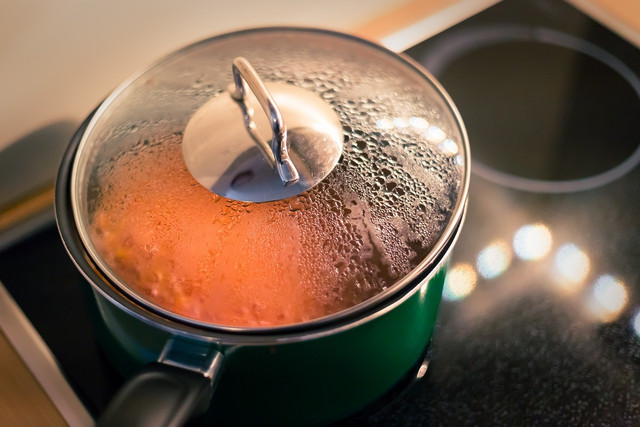


(Foto: CC0 / Pixabay / scratsmacker)
There are days when you just want to make dinner quickly, and this is one major benefit of pressure cookers. Using a pressure cooker can cook foods much faster than conventional stove-top pots and pans, making it a handy tool to speedily get a meal on the table. This is because most of the energy that is put in will stay inside in the form of steam that steadily rises, increasing the pressure. Without the pressure, the water would not be able to reach temperatures as high as 250F and would evaporate.
One more thing to note is that water boils at lower temperatures at higher elevations. For this reason, many mountaineers opt for a pressure cooker as an essential piece of cooking equipment. A pressure cooker creates a stable atmosphere, which allows for faster and more consistent results at any altitude.
4. Fewer Harmful Compounds
When some foods such as potatoes are cooked, a chemical called acrylamide is formed: a harmful compound that has been linked to the development of cancer and infertility. Foods cooked by pressurized steam don’t have as much acrylamide as foods cooked by other methods, like baking or roasting.
Pressure-cooking also makes grains and legumes more nutritious by increasing their digestibility and bioavailability by reducing lectin (an anti-nutrient that blocks some nutrients from being absorbed) and aflatoxin to levels that are not harmful to us.
5. Less Mess
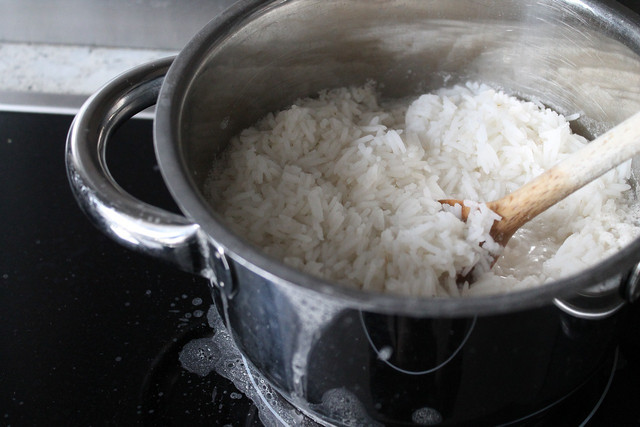


(Foto: CC0 / Pixabay / FlitsArt)
With pressure cooking, you have less cleaning and washing up to do afterward with one pan than with regular cooking, where multiple pots and utensils are involved. Cooking with regular stove-top pots leaves cooking residues all over the place and can be a nightmare to clean. Combining all your ingredients into one pot can be quite convenient.
Another benefit of pressure cookers is that they’re easy to use. Though it may take you a while to get used to pressure cooking since some recipes need to be modified to accommodate for the extra liquid left in your food, some folks never look back!
6. Preserving Foods
Pressure cookers are also used to can and preserve foods for later use. Cooking and canning instructions for pressure cookers include charts of the foods which can be canned, time schedules, and pressure settings for preserving each food type. Just remember to sterilize your jars for canning first.
These instructions should be followed carefully to make sure food is safe to keep. It’s because of this dual ability that larger pressure cooking models are often called ‘canners’. Smaller pressure cookers can be used for home canning, but they have the disadvantage of holding fewer jars.
7. Durability and Longevity
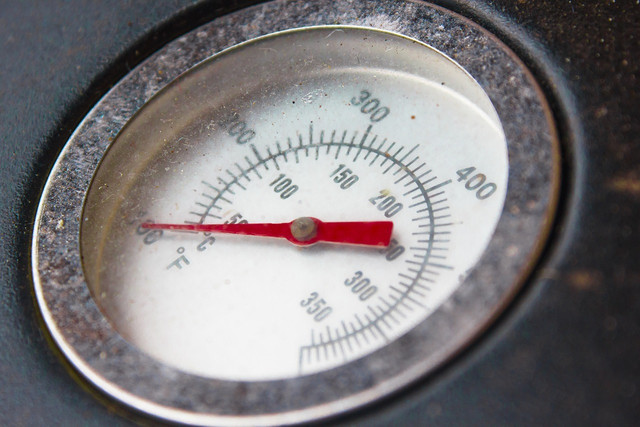


(Foto: CC0 / Pixabay / RiaanMarais)
Their durability is a definite benefit of pressure cookers, as they’re known to be almost indestructible. As with most appliances, models can range in price from $20 to $200. If you intend to use your pressure cooker regularly, we suggest getting something in the medium price range. The cheaper models are most often used for camping and traveling. Investing a little more money in a good model so that you can use it for a lifetime is always the more eco-friendly option.
A well-built and more expensive pressure cooker should last longer than a cheap one. For all the reasons mentioned above, it is a great investment to purchase a quality pressure cooker. They have more features, and functions, and typically produce higher-quality results.
Read more:
- 7 Ways to Thicken Up Stew for Best Results
- Fermenting Vegetables at Home: A Beginner’s Guide
- How to Clean Copper Pans and Pots Naturally
Important Information regarding Health-related Topics.
** Links to retailers marked with ** or underlined orange are partially partner links: If you buy here, you actively support Utopia.org, because we will receive a small part of the sales proceeds. More info.Do you like this post?






